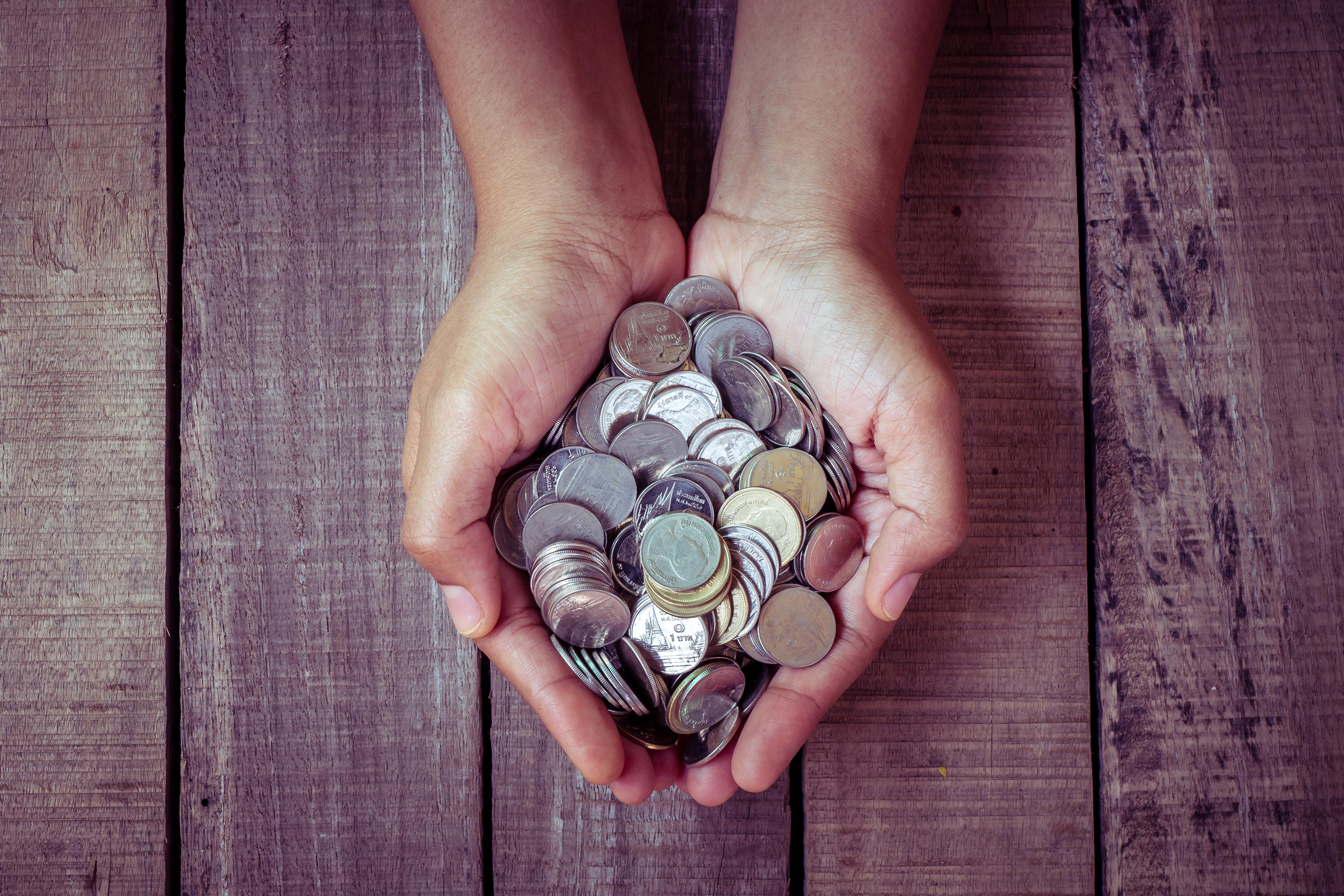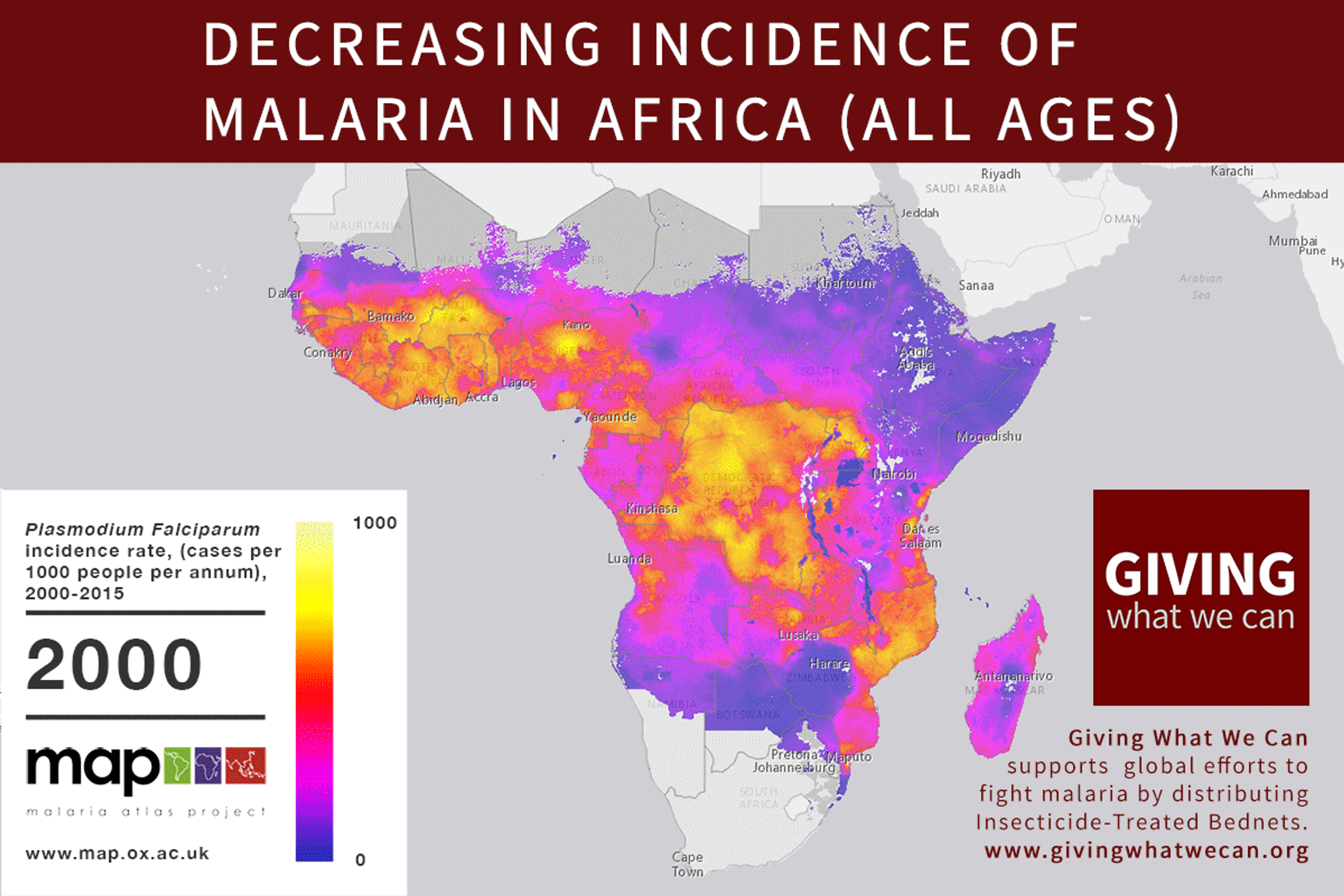In today’s world the rich are getting richer, they give less to charity — particularly internationally! At the same time, 896 million live on less than USD 1.90 per day and 3 million children die each year of basic preventable diseases.

What can we possibly do about these issues? And, quite frankly, why should we do anything at all if others do not?
Do the actions of others change what we should do? What can we achieve if we are not millionaires?
According to the World Bank’s most recent estimates in 2012, 896 million people lived on less than $1.90 a day and over 2.1 billion people in the developing world lived on less than US $3.10.
There were also around 214 million cases of malaria in 2015 causing approximately 438,000 deaths.
And yet only about 4% of donations in America and 12% in the UK go to international charities each year.
What is more, it is the poorest in America that give the highest percentage of their income to charity. Research by the Chronicle of Philanthropy in 2011 showed that the wealthiest Americans—those with earnings in the top 20% in America—donated, on average, around 1.3% of their income to charity. Americans in the bottom 20% donated about 3.2% of their income. Not only that but the rich were much more likely to donate to institutions in their circle: universities they attended or the arts, rather than charities that help the poor.
If the rich are not doing their part, why should we try and help the global poor?
We are rich
It’s tempting to argue that since there are so many people out there with the money to make a difference, they should be the first to pick up this responsibility. They can afford it. They are rich!
But how rich is rich?
The median full time wage is around £27,000 in the UK and $51,000 in the USA. This places the average person in these countries in the richest 5% of the world’s population. This means that, even accounting for the different costs of buying goods in different countries, we likely earn about 18 times the global average wage!
Where do you fall against the global average? See for yourself with the Giving What We Can 'How Rich Am I' calculator.
We are extremely fortunate in many developed countries. Not only do we have great education, health and other services, but we have a lot of financial freedom too. And we can use that wealth to do amazing things.
Still, unless you are Bill Gates, it is likely that there are a lot of people out there who are richer than us. So why should we be the ones to give?
To take a variant on Peter Singer’s classic drowning child example, imagine yourself walking past a pond on the way to work. As you walk, you spot two children struggling in the water. They are drowning. They need help. You are not a very good swimmer but you could at least save one in time. You about to jump in to save them when you realise there is someone else by the pond. They are nearer the children and look to be stronger, perhaps a better swimmer. They might be able to help both children. But they are doing nothing. Would you now do nothing? Just because someone else who might be better equipped to help more people is not? Would you leave the one child you could have saved to die because someone else won’t help both?
I would wager you would still jump in.
When we are wondering about issues around wealth and responsibility we can ask ourselves, what kind of world do we want to live in? One where many people are leaping to help or only a select few?
If we want change we have to be willing to lead it.
What can we achieve?
The drowning child example may seem far removed from the large-scale issue of global poverty, with 214 million cases of malaria and 896 million people on less than $1.90 a day. The problem may seem just too big for any one person to do anything impactful.
But it’s not.
In 1990, 1.95 billion people lived on less than $1.90 a day - now it’s 896 million. That’s down 37%. Mortality rates for malaria fell 60% globally between 2000 and 2005.

We are making progress.
The amount of money we need to end extreme poverty isn’t endless. While we may need $28 billion to give everyone basic sanitation education and health care, we spend $58 billion globally on ice cream each year!
Imagine what we could achieve if we all got together to direct our funds with intention.
There may be 214 million people with malaria. But they are all individual men, women and children and as others walk by we can stop and help.
$5 would provide an anti malarial bednet that would help protect from the malarial bite of a mosquito for up to 5 years. Just under $1.26 would allow the Schistosomiasis Control Initiative to give someone a tablet to get rid of intestinal worms which affect around 261 million people
You don't need to live somewhere like this to make a big difference.

If you are on that UK average income of around £27000 and you decide to give 10% of your income you could fund over 500 anti malarial bednets in a year. Or over 2500 deworming tablets.
In a year you could donate enough to prevent someone from dying from malaria. Not the ‘treat one person on one occasion for one potentially fatal illness’ that many charities cite but really help ensure someone lives out a healthy life.
Even if you cannot give that much in a year, what you donate will still make a difference - as long as you donate to effective charities.
You don’t need more money to do more
The drowning child analogy can sometimes seem far removed from reality because if we save a child from a pond we know we will save them. When giving to charity it’s harder to see the exact outcome and you may worry (sometimes rightly) that your money won’t really get to those who need it.
That’s why it is so important to try and work out the impact of our donations and look into the most effective charities. By donating to top charities like the Against Malaria Foundation we can make sure the money we give goes as far as possible.
So why should we give even if the rich don’t?
In so much of the developed world we are incredibly fortunate in much of the financial freedom, opportunities and support we receive. Whilst we may not always feel it when compared to our close peers, when looking at the world we truly are rich.
Whatever our income, we can make a huge difference to someone by donating effectively. And when we all get together that change can be immense. At the time of writing Giving What We Can members have already donated $14,888,624 to effective charities! Imagine what we could achieve if more people gave.
Help lead that change.
If you’d like to find out more about what you can achieve why not Try Giving? Set the amount and length of time and see what you can give.